
- Home
- Trend
- Weight Loss Strategies
- Acne Tips
- Hair Health Information
- Blemish Removal Tips
- Acne Scar Removal Tips
- Muscle Building Techniques
- Intimate Care Tips
- Postpartum Intimate Care
- Eye Bags Wiki
- Tips for Face Slimming
- Secret of Permanent Hair Removal
- Breast Enlargement Tips
- Cure to Snoring
- Marionette Lines
- Skin-Tightening Secrets
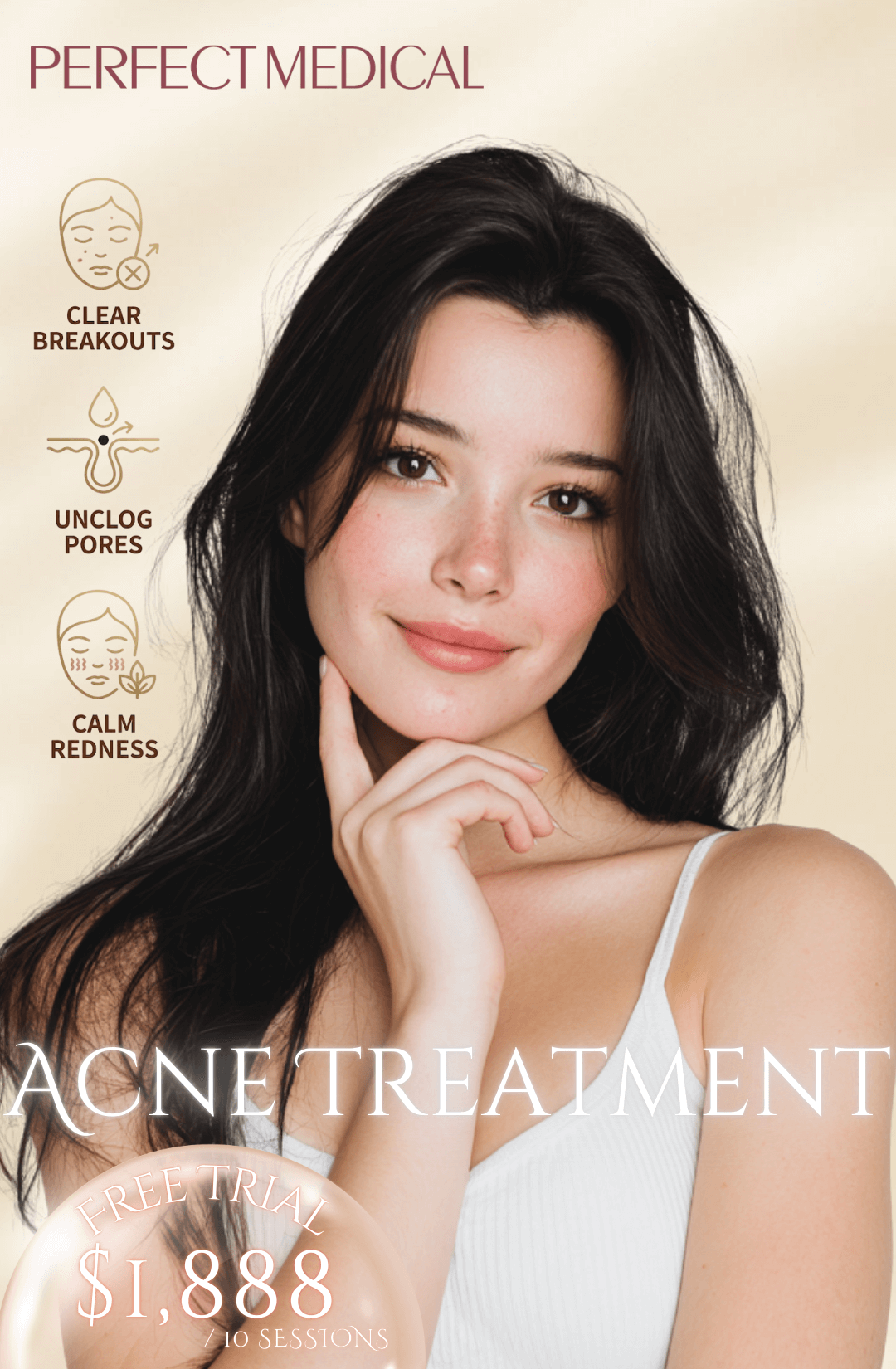
免費體驗
Acne Treatment
1 Minute Self-Registration
Date should not be before minimal date
Acne supplements are dietary supplements or vitamins that are often taken to help manage or prevent acne breakouts. While these supplements may not be a replacement for a healthy skincare routine, they can complement it by addressing underlying factors that contribute to acne.
1
Types of Acne You May Encounter
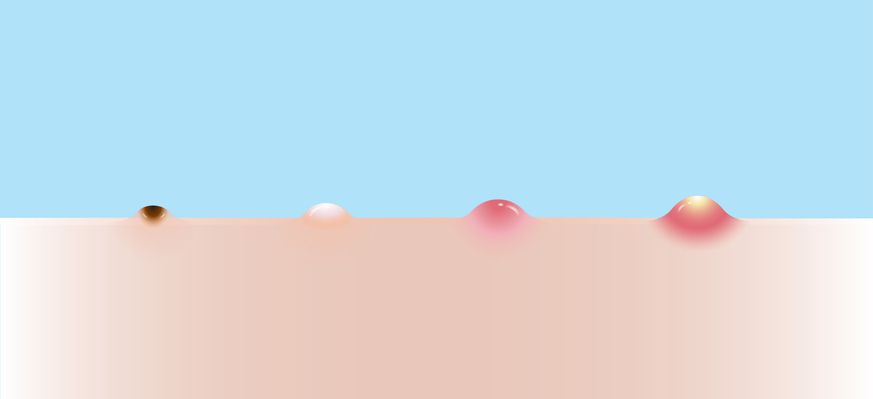
Acne is a prevalent skin condition known for its diverse range of symptoms, each of which can vary in appearance and severity. Understanding these symptoms is crucial for effective diagnosis and treatment. Here are some of the key manifestations of acne:
1. Pimples
Pimples are perhaps the most iconic and recognizable sign of acne. They typically appear as raised, reddish bumps on the skin's surface. What distinguishes them is that they can contain pus, leading to the formation of pustules, or they may remain pus-free, known as papules.
2. Blackheads
Blackheads are characterised by small, dark spots on the skin's surface. They develop when hair follicles become clogged with sebum (skin oil) and dead skin cells. Unlike some other forms of acne, blackheads are open comedones, which means the pore remains open to the air, leading to their distinct dark coloration. They are generally not inflamed and tend to appear as small, dark dots.
3. Whiteheads
Whiteheads share similarities with blackheads but have a different appearance. These are closed comedones, meaning the pore is obstructed by skin cells and sebum but remains closed. As a result, whiteheads appear as small, white or flesh-coloured bumps on the skin.
4. Cysts
Acne cysts are more severe and painful than the aforementioned symptoms. These cystic lesions are typically larger and can be found beneath the skin's surface. They are filled with pus and are known to cause discomfort. When cysts eventually heal, they often leave behind scars, making them a concern for both physical and emotional well-being.
5. Nodules
Nodules are another severe form of acne and are often confused with cysts due to their painful nature. These deep, hard lumps form beneath the skin and are larger and deeper than standard pimples. Nodular acne can also result in scarring, adding to its long-term impact on the skin's appearance.
6. Inflammation
Inflammatory acne involves the presence of redness, swelling, and tenderness in affected areas of the skin. This type of acne can be particularly painful and distressing. Inflammatory lesions may range from small papules to larger pustules and nodules, and their severity can vary from person to person.
Before you think about which supplement to take to treat acne, you should know acne is generally not a one-size-fits-all condition; it presents itself through various symptoms, each with its own characteristics and implications. Recognizing and understanding these symptoms is essential for effectively managing and treating acne, as different approaches may be required to address different types and severities of the condition.

2
Who Should Start Taking Care of My Skin Health?

Deciding to start taking acne supplements should be done cautiously and ideally under the guidance of a healthcare professional or dermatologist. Here are some factors to consider:
If you have persistent or severe acne
If you have persistent or severe acne that is not responding well to over-the-counter treatments or lifestyle changes, supplements may be considered as an additional approach.
If you have nutritional deficiencies
Some supplements, such as zinc or specific vitamins, may be recommended if you have identified nutritional deficiencies that could be contributing to your acne.
3
What happens if I ignore my acne symptoms?
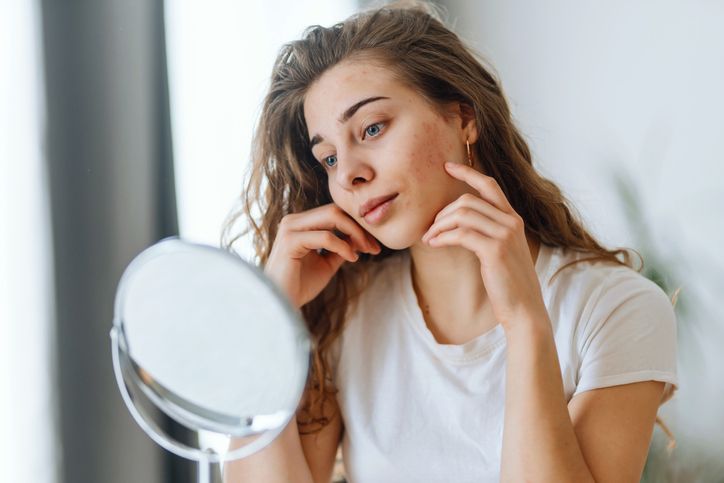
If hormonal or inflammatory acne is left untreated, it can lead to various potential consequences, both in terms of physical health and emotional well-being. Here are some of the outcomes that can occur if hormonal or inflammatory acne is not addressed:
Worsening of acne
Hormonal and inflammatory acne often tends to become more severe over time if left untreated. This means that the existing pimples, cysts, nodules, and other lesions can increase in number and size. As the acne becomes more pronounced, it can have a more significant impact on a person's appearance and self-esteem.
Scarring
One of the most concerning outcomes of untreated acne, especially inflammatory and cystic acne, is the risk of scarring. Picking, squeezing, or popping acne lesions can increase the likelihood of scarring, which can be long-lasting and difficult to treat. Even without manipulation, severe acne itself can cause scarring as lesions heal.
Psychological and emotional impact
Acne, especially when it's visible and severe, can take a toll on a person's mental health. It can lead to feelings of embarrassment, self-consciousness, and low self-esteem. Individuals with untreated acne may avoid social situations, leading to isolation and a negative impact on their overall quality of life.
Hyperpigmentation
Inflammatory acne can leave behind dark spots or hyperpigmentation, even after the active lesions have healed. This discoloration can persist for months or even years, further affecting a person's self-confidence and self-image.
Permanent changes
In some cases, severe and untreated acne can lead to permanent changes in the skin's texture and appearance. This might include enlarged pores, rough skin texture, and long-lasting redness.
Secondary infections
Untreated acne can potentially lead to secondary bacterial infections. When acne lesions rupture or are picked at, they become vulnerable to infection. These infections can be painful and may require medical intervention.
Hormonal imbalances
Hormonal acne is often linked to imbalances in hormones, particularly in females. Leaving hormonal acne untreated may not only exacerbate skin issues but could also signal underlying hormonal problems that need attention.
Quality of life
Acne, especially severe forms, can significantly impact a person's quality of life. It may affect their social interactions, self-confidence, and overall sense of well-being. This can lead to emotional distress and even depression in some cases.
Untreated hormonal or inflammatory acne can have both physical and psychological consequences. It can lead to worsening skin problems, scarring, emotional distress, and a decreased quality of life. Seeking appropriate medical advice and treatment is essential to manage and prevent these potential complications associated with acne.
Remember that not all individuals will benefit from acne supplements, and results can vary from person to person. Additionally, it may take some time to see improvements in your skin after starting supplements, so patience is important.
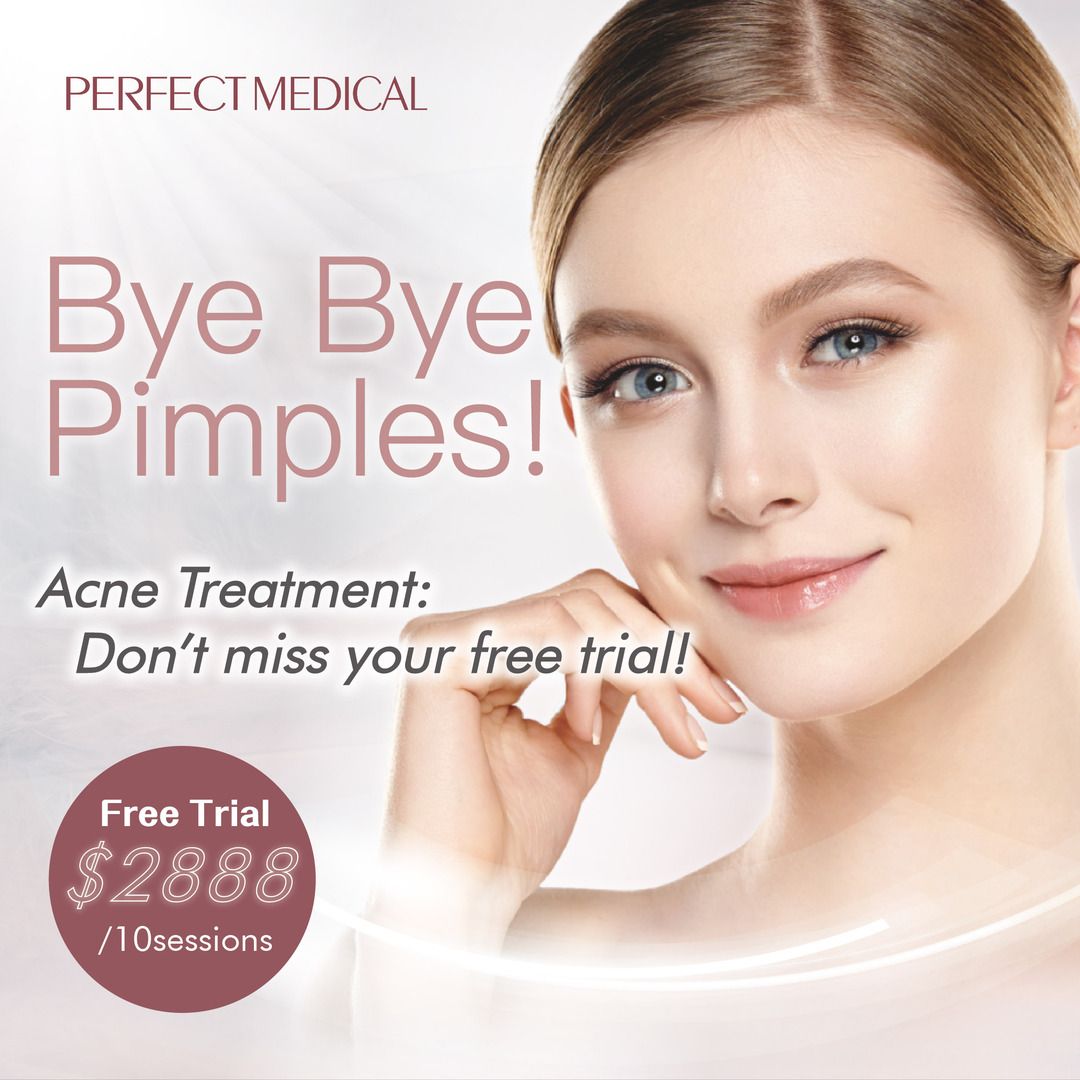
4
Types of Acne Supplements that can Improve Acne Symptoms
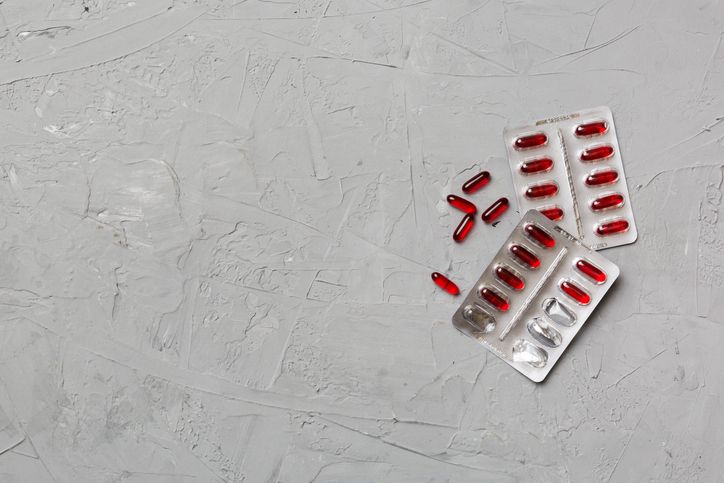
After understanding the importance of not ignoring acne vulgaris, let's dive into topical vitamin and oral vitamin that can be found in supplements that can potentially help with acne by addressing various factors that contribute to its development. However, it's important to note that the effectiveness of these supplements can vary from person to person, and results may not be immediate. Here are some substances commonly found in vitamin and mineral supplements that may help with acne:
Vitamin A
Vitamin A is crucial for maintaining skin health because it supports the skin's natural shedding process and helps prevent clogged pores. It's often included in skincare products and supplements designed to improve skin appearance. However, excessive intake of vitamin A can be harmful, so it's essential to consult a healthcare professional before considering supplements. A balanced diet rich in foods like sweet potatoes, carrots, and spinach can provide natural sources of vitamin A.
Vitamins B (B5 and B6)
Specific B vitamins, such as B5 (pantothenic acid) and B6 (pyridoxine), are believed to help regulate oil production in the skin. By controlling excess oil production, these vitamins may contribute to fewer breakouts and overall improved skin appearance. Incorporating foods like lean meats, poultry, and whole grains into your diet can provide natural sources of these B vitamins.
Vitamin C
Vitamin C is a powerful antioxidant that plays a critical role in skin health. It stimulates collagen production, essential for skin elasticity, and helps reduce inflammation. Both dietary sources (e.g., citrus fruits, strawberries) and vitamin C supplements can be beneficial for maintaining healthy and vibrant skin.
Vitamin D
While primarily known for its role in bone health, vitamin D may also have a connection to acne management. Adequate vitamin D levels contribute to overall well-being, which can indirectly impact skin health. Sunlight exposure, fortified foods, or vitamin D supplements are ways to maintain appropriate levels of this vitamin.
Zinc
Zinc is a mineral known for its anti-inflammatory and antioxidant properties. It can help regulate sebum (oil) production in the skin and support the skin's healing process, making it valuable in acne management. Zinc can be included in your diet through foods like nuts, seeds, and whole grains, or you can consider zinc supplements.
Omega-3 Fatty Acids
Omega-3 fatty acids, found in fish oil supplements and fatty fish like salmon, have potent anti-inflammatory properties. These can help reduce the inflammation associated with acne, leading to healthier skin. Including more fish in your diet or taking omega-3 supplements can be beneficial.
Probiotics
Probiotics are beneficial microorganisms that support a healthy gut microbiome. A balanced gut microbiome can indirectly influence skin health by reducing inflammation and supporting overall well-being. Probiotic-rich foods like yoghourt and kefir, as well as probiotic supplements, can help improve gut health, potentially leading to clearer skin.
Evening primrose oil
Evening primrose oil contains gamma-linolenic acid (GLA), which is thought to help regulate hormones. It is often used as a supplement for hormonal acne management, as hormonal imbalances can contribute to acne breakouts. However, it's essential to consult a healthcare professional before using evening primrose oil or any other hormone-regulating supplements.
Turmeric
Curcumin, a compound found in turmeric, has potent anti-inflammatory properties. When taken as a supplement, turmeric can help reduce the inflammation associated with acne, potentially leading to clearer skin. Turmeric supplements are available, or you can incorporate turmeric into your diet through cooking or beverages.
Green tea extract
Green tea extract supplements are derived from the leaves of the Camellia Sinensis plant. Green tea contains antioxidants that have anti-inflammatory effects on the skin. These supplements can help reduce skin inflammation and promote overall skin health. Green tea extract is often included in skincare regimens designed to improve acne-prone skin.
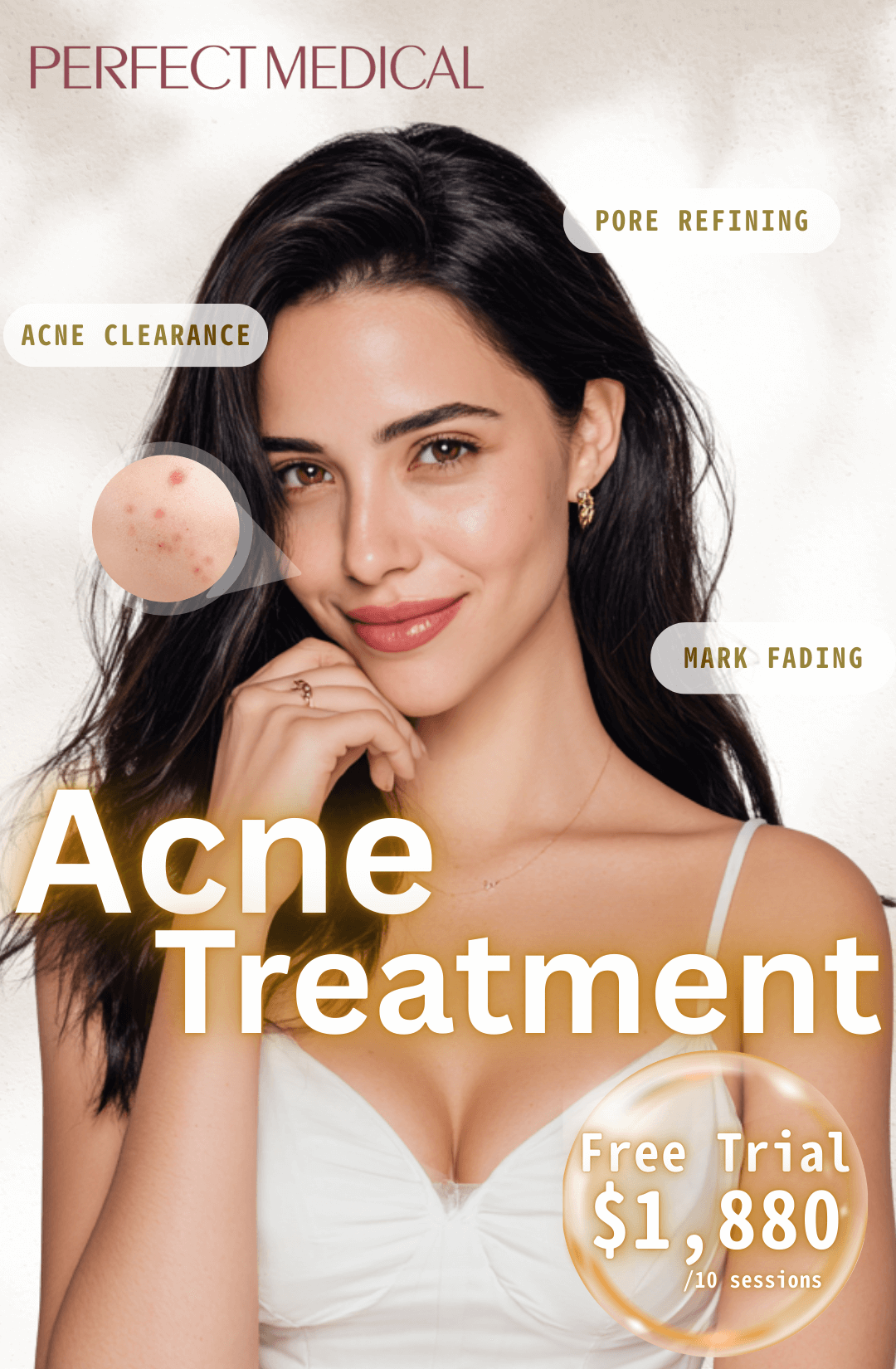
免費體驗
Acne Treatment
1 Minute Self-Registration
Date should not be before minimal date
5
Pair Up Your Oral & Topical Treatment for Acne with Perfect Medical's Solution!

No matter what supplement you are taking, Acne Treatment by Perfect Medical is particularly well-suited for individuals with acne-prone skin and great to complement your current skin care routine. This specialised procedure employs vacuum microdermabrasion to address a range of skin concerns associated with acne. Its primary goals are to unclog pores, reduce irritation, and accelerate the skin's natural exfoliation process.
The treatment incorporates a unique dual spiral suction and drainage technique, which serves to open up pores while simultaneously diminishing the inflammatory and contagious effects of acne by eliminating dead skin cells. This process prepares the skin for further rejuvenation.
Following this preparatory phase, a hydrating serum is carefully infused into the skin. This serum has multiple benefits, including stimulating collagen production and regulating sebum (skin oil) secretion. The reduction in excess oil production is instrumental in reducing the likelihood of future acne breakouts.
How Acne Treatment gives you additional boost aside from goodness you get from vitamins and minerals
Acne Treatment addresses a wide spectrum of skin issues. It is effective in managing inflammatory acne vulgaris, acne caused by hormonal imbalance, as well as blackheads, whiteheads, pockmarks, enlarged pores, dry skin, and the aftermath of acne scars. By hydrating the skin, promoting collagen synthesis, and curbing sebum production, this treatment significantly diminishes the occurrence of acne and blackheads. In essence, the Acne Treatment by Perfect Medical not only provides relief from existing acne-related concerns but also promotes long-term skin health and an overall improved appearance.
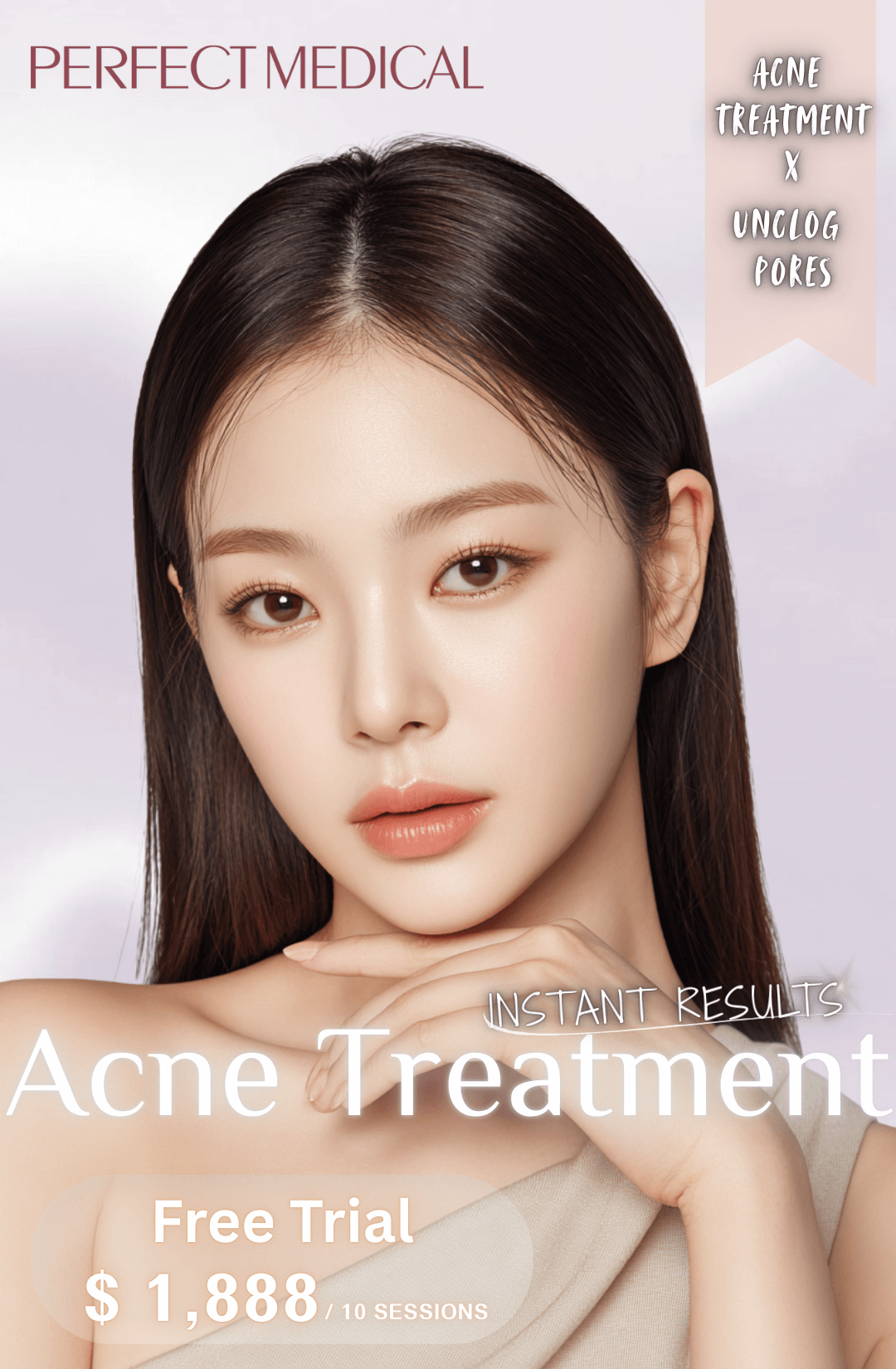
免費體驗
Acne Treatment
1 Minute Self-Registration
Date should not be before minimal date
FAQ

1. How long does it take for topical treatments to take effect?
The effectiveness of topical acne treatments can vary depending on the product and the individual's skin. In general, it may take several weeks (typically 4-8 weeks) of consistent use before noticeable improvements in acne are seen. Patience and adherence to the treatment regimen are essential for the best results.
2. Can people with gastric issues take oral supplements for acne?
People with gastric issues should exercise caution when taking oral supplements for acne. Some supplements, particularly those high in certain vitamins and minerals, can potentially irritate the stomach. It's advisable for individuals with gastric issues to consult with a healthcare provider before starting any oral supplements to ensure they are safe and well-tolerated.
3. What happens if a person consumes too much zinc?
Excessive zinc intake can lead to adverse effects. These may include nausea, vomiting, diarrhoea, and stomach cramps. In severe cases, chronic overconsumption of zinc can interfere with the absorption of other essential minerals in the body. It's important to stay within recommended daily intake levels, which can vary depending on age and gender, and consult a healthcare professional if considering zinc supplements.
4. What acne supplement has antioxidant properties?
One common acne supplement with antioxidant properties is Vitamin E. Vitamin E is known for its antioxidant capabilities, which can help protect the skin from oxidative damage. Antioxidants can be beneficial in supporting overall skin health and may be included in some acne treatment regimens.
5. Can someone with acne scarring issues regain clear skin?
Yes, individuals with acne scarring issues have several options to improve the appearance of their skin. Treatment options for acne scars include laser therapy, chemical peels, microneedling, dermal fillers, and surgical procedures. The choice of treatment depends on the type and severity of the scars. While complete restoration of the skin to its pre-acne condition may not always be possible, significant improvements in the appearance of acne scars can often be achieved through these treatments, leading to clearer and smoother skin. Consulting with a dermatologist or skincare professional is essential to determine the most suitable approach for addressing acne scarring.








